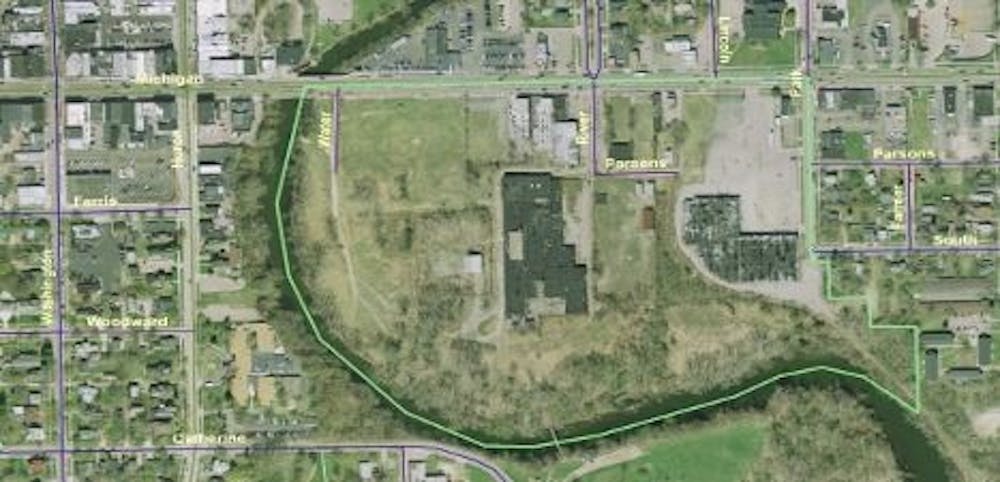There are many problems within Ypsilanti: concentrated low income housing, a higher than average crime rate and below average public schools. These issues are well-known and often openly discussed by residents.
Crime is constantly covered by the local media because these articles are some of the most popular due to their sensationalist nature; who could resist reading about an Ypsilanti woman stabbing her boyfriend with a Japanese samurai sword?
While high crime is well known throughout the area, one of the biggest - if not the biggest - issue holding Ypsilanti back is barely talked about: the Water Street debt.
This debt crisis began in the late 1990s because of a singular bad decision taken by the city council. From 1999 until 2003, the city purchased the 38-acre Water Street property, a large piece of land just west of downtown. To make this purchase a reality, Ypsilanti borrowed $31 million, believing that a developer would immediately purchase the property - thereby eliminating the debt - and build houses and businesses on it. This would then raise the amount of revenue the city collects in property taxes. Many viewed the purchase as the beginnings of a new and prosperous era for Ypsilanti.

An aerial view of Ypsilanti's Water Street property. It is just south of Riverside Park and just east of downtown.
These grandiose visions were quickly crushed, however, as Water Street was contaminated by the factories that once operated on it, meaning that an extra $4 to $8 million would have to be spent on environmental cleanup costs. No residential property could be lawfully built on the land before a cleanup.
Because of this, no developer has purchased the land, while the environmental cleanup has never been completed. Therefore, since 2003, Ypsilanti has been stuck paying off the $31 million by itself. For a city that usually brings in an average of $21 million annually in revenue, bankruptcy looked to be a genuine possibility.
The Water Street debt, which currently sits at $8,785,000, has forced elected officials to make drastic cuts in public safety and city services. For example, in 2016, Ypsilanti’s City Council approved cuts to the city’s police force and the elimination of funding for its community centers. This included things such as the Rutherford Pool on Congress Street. The Water Street debt has resulted in public safety and services being cut while elected officials have simultaneously looked to raise taxes on residents.
The City of Ypsilanti borrowed the $31 million for Water Street through what is called a general obligation bond. The catch with this type of bond is that local governments have to meet the payment requirements at any cost, even if that means raising taxes. This is exactly what Ypsilanti did. In 2017, after multiple failed attempts, residents approved a 2.3-mill proposal, generating an additional $650,000 in yearly debt payments. This was on top of the already established $880,000 yearly payments.

Remaining debt from the Water Street property purchase, affected by the passage of time and city council decisionmaking. Constructed via data from City of Ypsilanti Archives.
Voters approved this tax increase, giving Ypsilanti the highest tax rate in comparison to all of its direct neighbors. This includes Ann Arbor, Saline, Chelsea, Milan and Ypsilanti Township.
What reason do middle to upper income earners with children, or plans for children, have of moving to Ypsilanti? They will pay much more in taxes than other neighboring cities for a city which has worse public schools, more crime and less city services than its neighbors.
Ypsilanti residents are paying more for less. The Water Street debt is expected to be fully paid off in 2031. Unfortunately, the high taxes on residents will be here for more than another ten years, but it is also a clear positive that this debt will be eliminated.
After the mess is finally dealt with, city council must lower the city’s millage rate to those of its neighbors or ensure that public safety, its public schools and city services will improve.
High crime and below average public schools are clearly holding Ypsilanti back, but these issues will never be properly addressed until the Water Street debt is eliminated. The City of Ypsilanti simply cannot properly fund its police force and city services until the debt is paid off.










